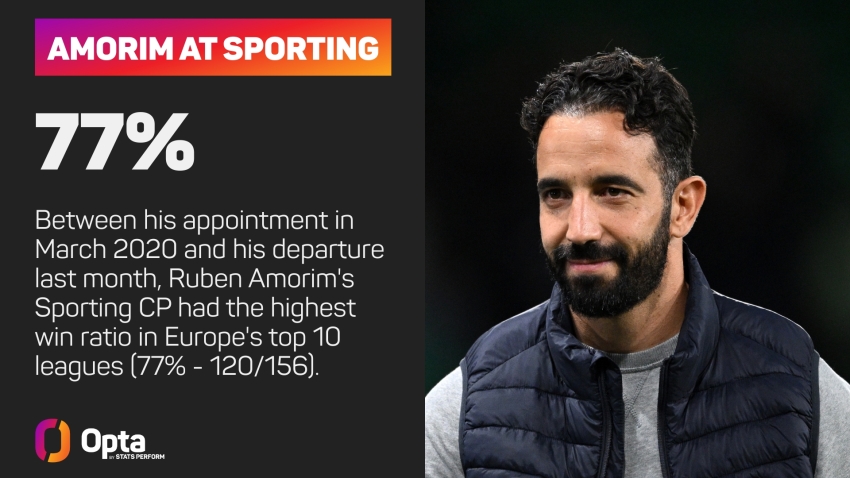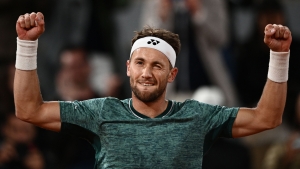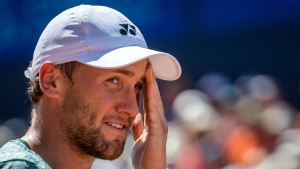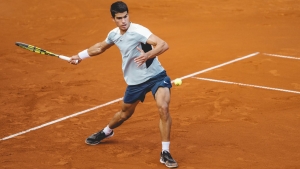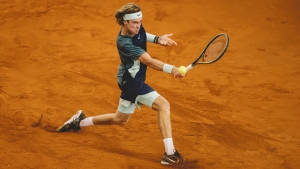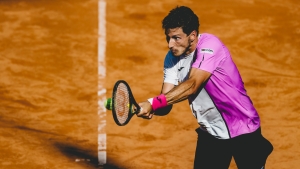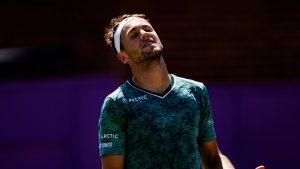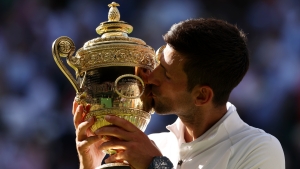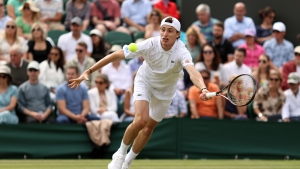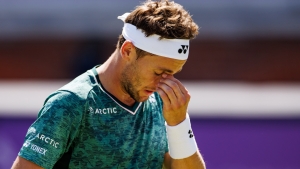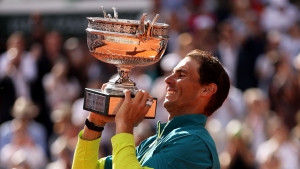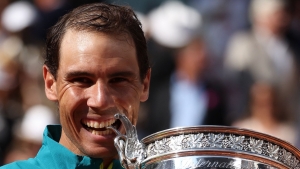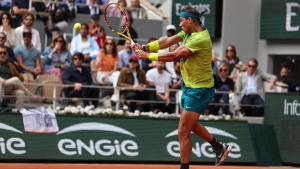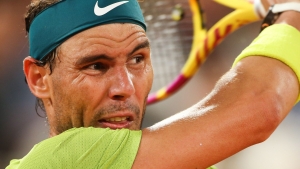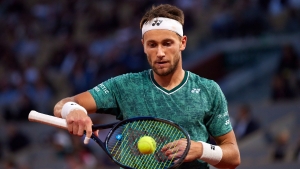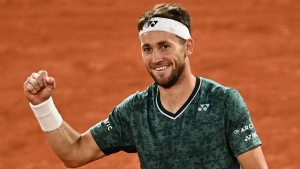Rafael Nadal versus Casper Ruud has the air of one of sport's great mismatches ahead of the French Open title match.
Nadal's record at Roland Garros is spectacularly intimidating as he bids for a record-extending 14th title on the Paris clay, having won all 13 of his past finals.
In sharp contrast, Ruud has never played a grand slam final. Nor until this week had he played a semi-final at this level, or a quarter-final.
Nadal will be chasing a 22nd title at the majors on Sunday, and Ruud a first; and yet there are factors that offer the underdog hope, not least the fact the favourite is pushing his body into a new fresh hell every time he steps onto court.
Coach Carlos Moya told ATPTour.com that Nadal, hampered by a long-bothersome foot problem, was carrying "a lot of wear and tear".
"But it's the final push," said Moya, anticipating one last gargantuan effort from the man who turned 36 this week.
"So far, Rafa has done an astonishing job of surviving without playing his best tennis."
Ahead of what could be a far tighter final than Saturday's one-sided women's showpiece, Stats Perform assesses the form and the stakes affecting both players.
One last swing at glory for Nadal?
It has long been the case that Nadal has nothing left to prove. Yet it is the Spaniard's instinct to want to push himself to new heights, and his quarter-final win over Novak Djokovic encapsulated that drive.
"All the sacrifices and all the things that I need to go through to try to keep playing really makes sense when you enjoy moments like I'm enjoying in this tournament," Nadal said after booking his place in the final. He was the beneficiary of Alexander Zverev's injury-forced retirement in the semi-finals, and now a first career match against Ruud awaits.
Should Nadal win, at the age of 36 years and two days, he would become the oldest men's singles champion at Roland Garros in history, surpassing his compatriot Andres Gimeno, who was 34 years, 10 months and one day old when he captured the 1972 title.
No other man in history has reached double figures for titles at a single grand slam, with Novak Djokovic's nine Australian Open wins the next most in a major. Across his 13 previous Roland Garros finals, Nadal has dropped only seven sets.
Given his injury problems, it is highly possible this will prove to be Nadal's final French Open. He has an astonishing overall record of 332-34 in sets won and lost at Roland Garros, emerging victorious from 111 of his 114 matches.
If Ruud looks too closely at Nadal's career numbers, they might become dizzying. The veteran has won 62 of his 91 titles on clay, once enjoyed an 81-match winning streak on the surface (2005-07) and has spent a record 871 consecutive weeks inside the ATP top 10, from 2005 to the present day.
He has never won the Australian Open and French Open in the same year, so that is now achievable, given his success at Melbourne Park in January, when he nudged one clear of Djokovic and Roger Federer on the all-time list of most men's singles slam wins.
"We haven't spoken about number 22," said Moya. "Obviously, it's on the horizon, but that would add pressure to Rafa. It's not necessary."
Would it be Ruud to crash the party?
Nadal said Ruud's run has been "not a surprise at all", and there were some experts who fancied the Norwegian to come through the bottom half of the draw before the tournament began, albeit with most making Stefanos Tsitsipas a likelier finalist.
A curiosity is the fact Ruud has trained at the Rafa Nadal Academy in Mallorca since 2018, and he has often practised with Nadal. This, though, is their first encounter in competition. The last first-time meeting in a men's French Open final came in 1997 when Gustavo Kuerten beat Sergi Bruguera.
Ruud, 23, would be the youngest men's singles grand slam winner since 20-year-old Juan Martin del Potro beat Roger Federer in the 2009 US Open final. That was a sensation of a result, with the Argentinian ending Federer's five-year reign in New York, and Ruud may find some encouragement from such an upset.
Ruud leads the ATP Tour since the start of the 2020 season in clay-court wins (66), finals (nine) and titles (seven), yet all of his eight career titles have come at ATP 250 level, a relatively low tier of the professional game where the biggest names rarely compete.
He stepped up by reaching the final of the Miami Open, an ATP 1000 tournament, in April, but was beaten to the title by Carlos Alcaraz.
Sunday's challenger from Oslo, whose father and coach Christian Ruud was an ATP top-50 player in his mid-1990s prime, is a former junior world number one.
He has now become Norway's first grand slam finalist and must tackle arguably the most daunting challenge in the men's game.
Nadal said of Ruud on Friday: "I think in the academy we were able to help him a little bit. I like to see a good person achieving his dreams. I'm happy for him, I'm happy for his mom, dad.
"I know them very well. They are a super healthy family and great people. As always, I am super happy when I see these great people having success."
Nadal did not go on to say he would disbar Ruud from his academy should there be a shock outcome on Sunday.
Perhaps the thought of Ruud winning simply never crossed Nadal's mind.











